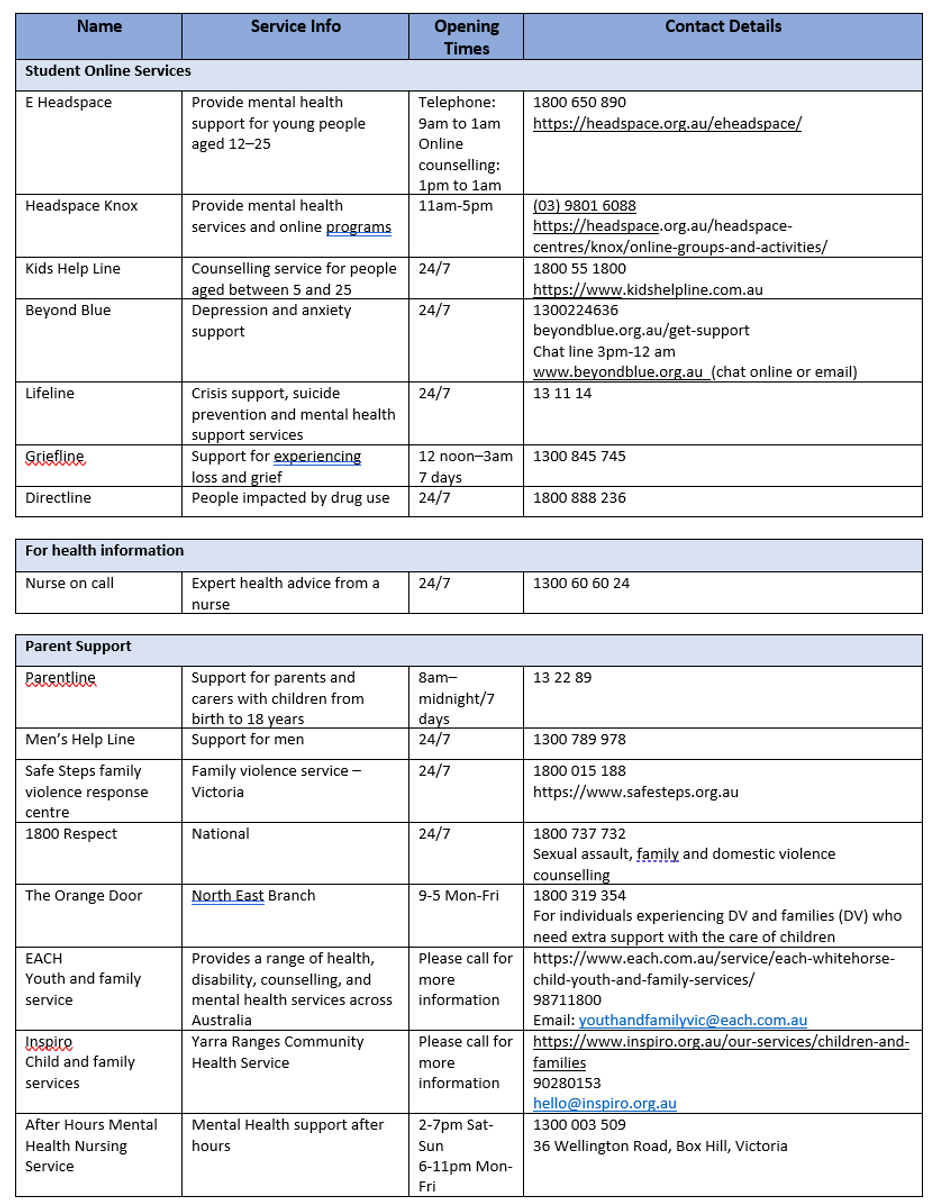Wellbeing

THE IMPORTANCE OF REST
It has been a long Term 2 and students have put in a massive effort over the last few weeks to complete exams, CAT’s, SAC’s and keep up with their learning. As we head into the highly anticipated two week break, we acknowledge the need students have for a break from their hard work. It is easy to fall into screens as an easy way to zone out and feel like we’re relaxing, but this can leave us feeling unsatisfied and unhappy. Dr. Saundra Dalton-Smith, a physician and author, has identified seven types of rest that we all need, especially during the busy school year. Being aware of different types of rest can help us to be proactive about how we spend our holidays. Here’s a quick breakdown of what they are and how you can get them:
1. Physical Rest
This includes both passive rest (like sleeping or napping) and active rest (like stretching, yoga, or massage). If your body feels worn out, this is the type of rest you need most.
Tip: Take movement breaks during study sessions and aim for 7–9 hours of sleep each night.
2. Mental Rest
If your brain feels foggy or you can’t concentrate, you may need mental rest. This means taking breaks from problem-solving or focusing too hard.
Tip: Try short mindfulness exercises, write down racing thoughts, or use focus timers to avoid overload.
3. Sensory Rest
We’re surrounded by screens, noise and constant notifications. Sensory overload can lead to irritability and exhaustion.
Tip: Take regular screen breaks, turn down your brightness, or spend time in quiet, low-light spaces.
4. Creative Rest
This type of rest helps you recharge your imagination and inspiration—especially important for students in creative classes or with heavy project loads.
Tip: Spend time in nature, listen to music, or do something enjoyable and creative where the focus is the process rather than the end product.
5. Emotional Rest
This involves being honest about your feelings and having spaces where you don’t have to pretend everything is fine.
Tip: Talk to someone you trust or journal your thoughts. It’s okay to admit when you’re not okay.
6. Social Rest
School is a very socially busy place, and sometimes, even being around friends can be draining. Social rest is about spending time with people who recharge you—or simply being alone if that’s what you need.
Tip: Prioritize time with supportive friends and don’t be afraid to set boundaries.
7. Spiritual Rest
This is about feeling connected to something bigger than yourself, whether through faith, purpose, or community.
Tip: Reflect on what gives your life meaning. Volunteer, meditate, or engage in spiritual practices that matter to you.
If you’re still feeling stuck on what to do with all your free time over the next couple of weeks, another helpful resource is ReachOut’s What’s your Chill Style Quiz: https://au.reachout.com/mental-wellbeing/selfcare/whats-your-chill-style
Bottom Line: Rest isn’t just about sleep—it’s about restoring every part of yourself.
HEALTH AND WELLBEING SERVICES/CONTACTS -
KNOX, MAROONDAH, YARRA RANGES

